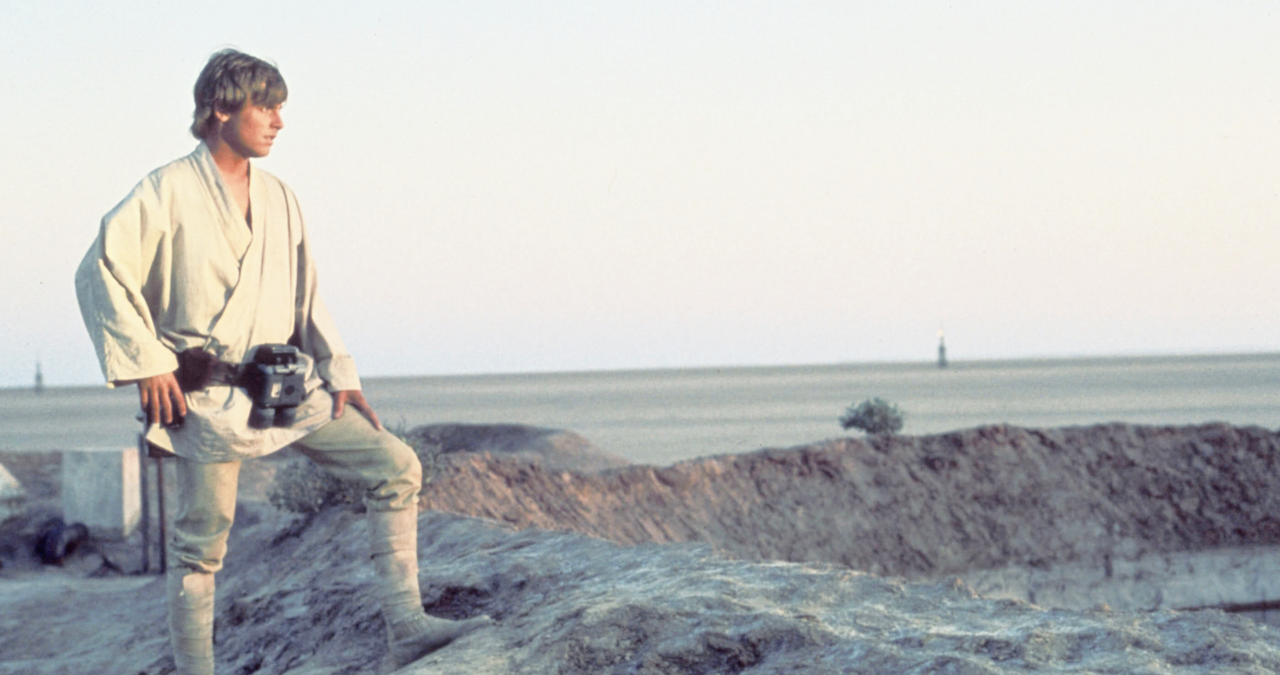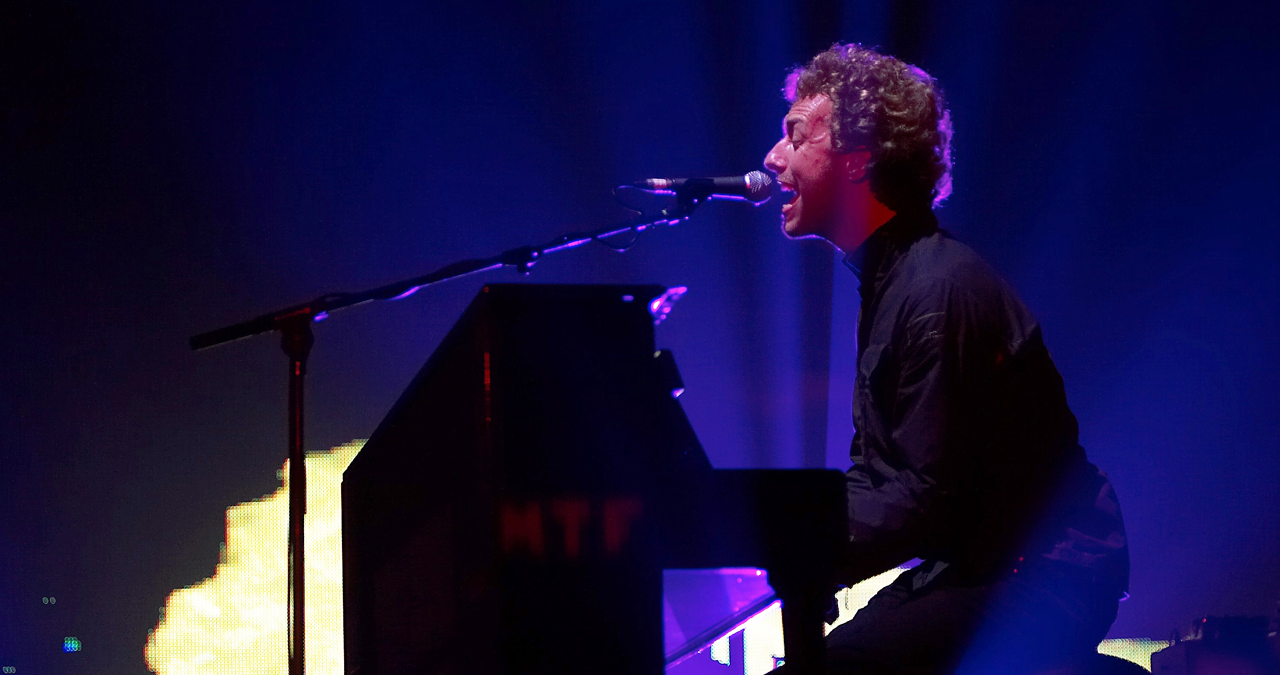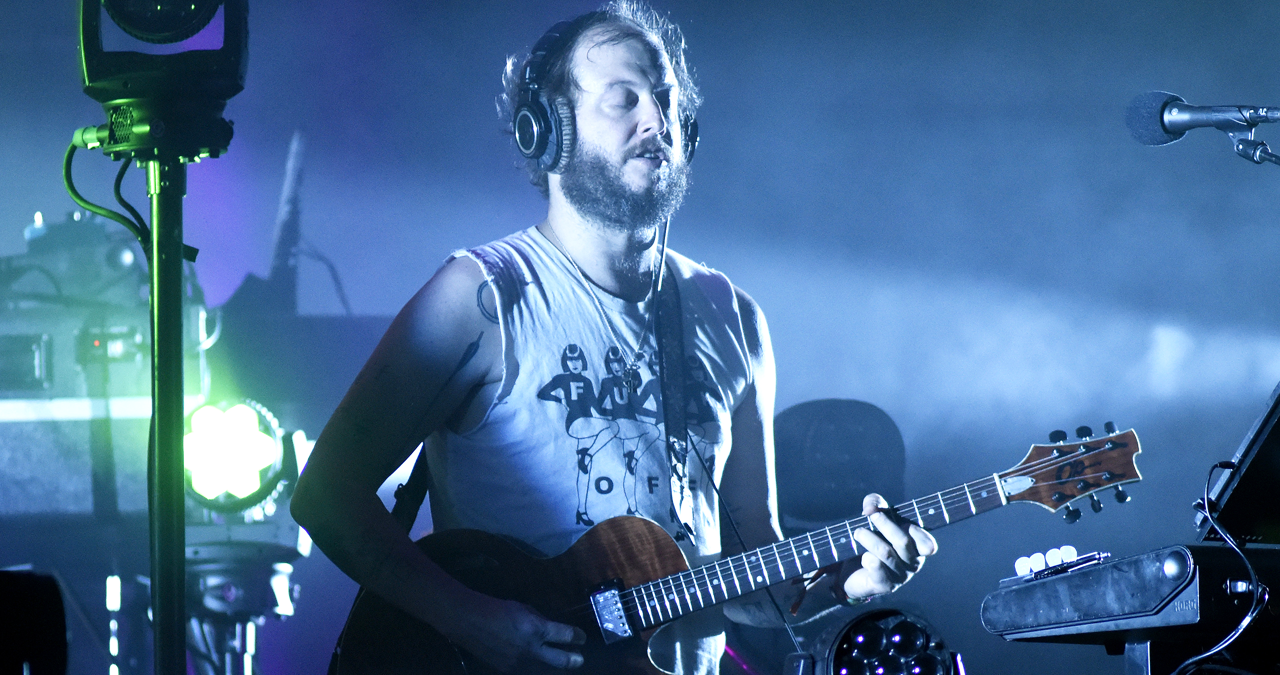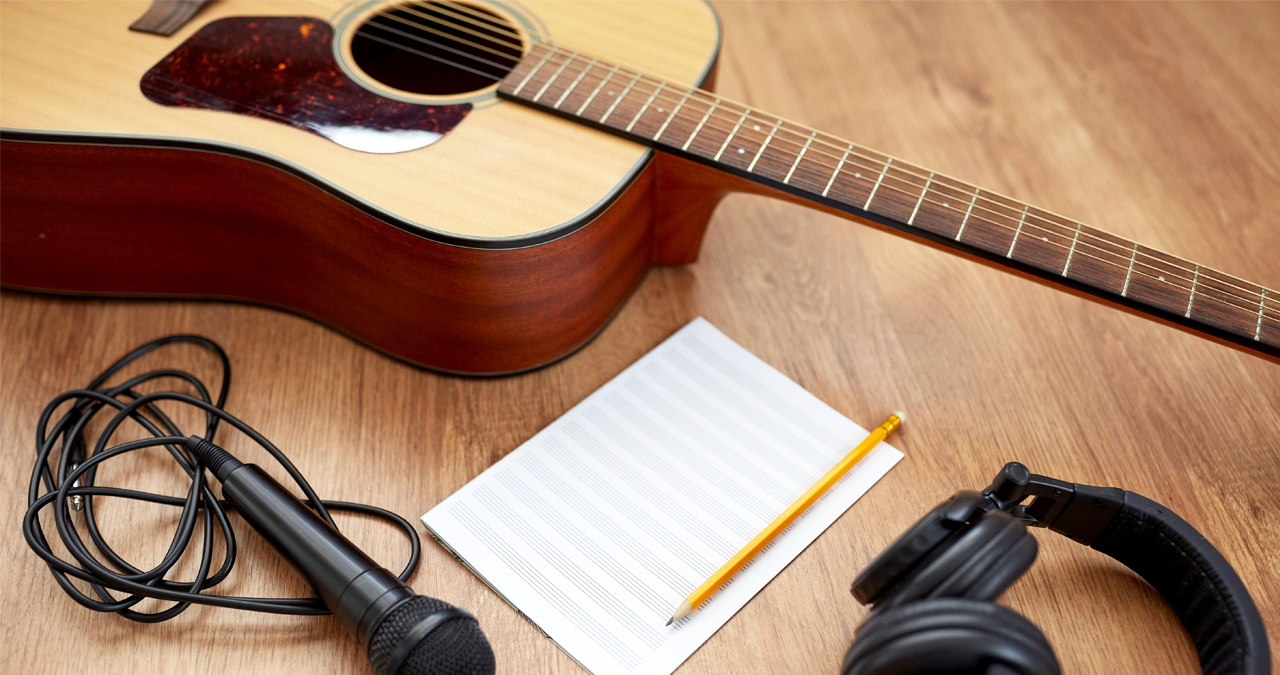“Where words fail, music speaks”: Why storytelling through music surpasses all other art forms
Narrative in music isn’t always about just what’s being said within a song’s lyrics - it’s what the music triggers in the core of the listener

Music just isn’t like other mediums. Somehow it has the ability, tantamount to magic, of drilling deeper within, tickling deeply entrenched emotions we perhaps didn’t realise we could feel.
A melody can be encoded with memory, chords can dredge up the very smell of the room you were in during a pivotal turning point in your life, and a certain lyric - backed with the right chord progression - can resurrect people and conversations long-buried in the subconscious.
Though every art form has distinct attributes - film, television, literature and even video games, music, by its very unspoken nature, supplants surface level storytelling with pure resonance.
It makes a grasp for the very soul of the listener. Whether that be a song that is tailor-made to draw tears and inner-reflection, or tracks that are structured to make listeners feel like the coolest people on Earth - having the best night out it's possible to have within that very moment of hearing the track. Music programs the human mind to steer itself a certain way.
This is why so many other, more straightforward, storytelling mediums, draw on the power of music to underscore their narrative beats.
For instance, in some of the most beloved films in the canon of modern cinema, music courses through every scene.
For some filmmakers, the emotional purity of music serves as the essential framework on which the surrounding narrative is draped.
“I hear the movie more in terms of music than I do in terms of sound effects,” said Star Wars creator George Lucas on the origins of his sci-fi mega-franchise. “I can actually hear it in my mind. I pay a lot of attention to the music, even during the early stages of writing.”
Can you imagine Star Wars' iconic, wordless 'binary sunset' scene without music?
Iconic director Quentin Tarantino similarly begins his creative process with music as a fountainhead from which narrative can flow; “One of the things I do when I am starting a movie, when I’m writing a movie or when I have an idea for a film is, I go through my record collection and just start playing songs, trying to find the personality of the movie, find the spirit of the movie…then, ‘boom,’ eventually I’ll hit one, two or three songs, or one song in particular, ‘Oh, this will be a great opening credit song,’” Tarantino said in the booklet to soundtrack compendium The Tarantino Collection.
While music in the context of a film soundtrack is typically deployed to overtly service the momentum of an actual narrative, its power as the intuitive emotional conductor is huge. A more effective storytelling device than dialogue, action and even character.
“Music can say intellectual things,” the late visionary filmmaker David Lynch told The Guardian, “but it can also speak to the heart in a wordless way that’s so powerful.”
Being able to write music that can resonate with listeners is a great ability, a way of touching other human beings without words.
Far too often, I see aspiring music-makers asking for advice that belies a mindset that the now, largely computer-based, process of music-making is something akin to a video game. A series of obstacles to be overcome.
Once a certain ‘level’ is reached, some assume, a position of greatness naturally follows.
It’s understandable though, why young music-makers might ask “When will I get good?” or even, “My songs suck, what can I do to make them better?” (to give just two examples), but from my own experience, and based on the approaches of some of history’s greatest musicians, often the best route is to forego the prescribed wisdom, and come at your developing craft from a different angle.
Achieving a level of technical excellence will make you a better musician, sure, but it won’t suddenly unlock a wealth of ideas worth expressing within your mind.
It might just be that rigidly watching tutorials and emulating your heroes isn't the only path to improving your abilities.
It'’s entirely likely you already have multitudes of fantastic ideas, or feelings you can’t describe verbally, locked away within you. Using music to try to convey these parts of yourself could be the dam-bursting moment you were searching for.
Lesson #6 - Engaging with music as primarily a storytelling medium can change how you approach the creative process
A more succinct way of getting to the nub of this important point, is via a quote from 19th century author Hans Christian Andersen, “Where words fail, music speaks.”
The magic of music lay in the relationship between the human mind and how it perceives certain arrangements of notes.
Take the most conventional ‘uplifting’ chord sequence, i.e. the ‘pop progression’ as used across myriad songs, including the Beatles’ Let it Be and Journey’s Don't Stop Believin' amongst countless others.
The logical journey through the chords within the key of C major triggers a reaction in the heads of listeners.
C (I) A firm, optimistic bedrock
G (V) Balances the positive emanation of the C with a natural swing to the V
Am (VI) Adds a flavour of wavering uncertainty
F (IV) Reassures us, and guides us back to the home chord of C
Even in this commonplace chord sequence, we feel a journey.
Because we’re naturally pattern-forming creatures, our brains scrabble to make sense of, what is ostensibly a mathematical arrangement of tones, mapping it onto something we can relate to: a narrative that correlates to this pattern.
Paul McCartney’s lyric to Let it Be scans this chordal arc perfectly, portraying a clear cut narrative that confirms the feelings resonated from the progression, looping back into a re-asserting of the home key - which punctuates the song’s central thematic motif.
C (I) “When I find myself in…”
G (V) “…times of trouble,”
Am (VI) “Mother Mary…”
F (IV) “…comes to me”
C (I) “Speaking words of…”
G (V) “…wisdom”
F (IV) “Let it be”
This example cribs from the age-old ‘reassuring’ progressions of religious hymns, but our point here is that the listener can sense the sentiment of the song before any lyrical information is conveyed.
Music's power to propose narrative is a universal truth, across every and all genres.
Think of the tortured undercurrents of the melancholic minor chords of Coldplay’s The Scientist, which generates the blurred outline of a story of regret before Chris Martin's lyric even begins. Then there's Black Sabbath’s titular song’s macabre, evil-evoking tritone riff that conjures way more dread than the late, great Ozzy Osbourne’s lyrical depiction of the sinister midnight figure at the end of the bed.
Even those writers who have a distinct flavour, or for whom lyrics play a massive role in their universe, it’s often simply how those words sound in a musical context that ensures their placement.
Want all the hottest music and gear news, reviews, deals, features and more, direct to your inbox? Sign up here.

Writers like Paul Simon, and Justin Vernon (aka Bon Iver) have realised that music is by far the more overwhelming communication method, and apply their lyrics more in relation to how they fit within a developing musical arrangement than how they relate to an overarching narrative.
For Justin Vernon, these lyrical ideas can sometimes stir stories long-forgotten that he can then lean on to carve out a fresh route forward.
“It starts with the sound of the words,” Justin Vernon told American Songwriter. “I was finding deeper meaning in my songs by allowing the words and the sounds to dictate where I headed with what I wanted to talk about. And I didn’t know what I wanted to talk about until I spent that energy, allowing the subconscious stuff to come through just by experimenting with sounds and words. I end up getting really meaningful stuff that way.”
Music, of course, can be shaped to dictate precisely how you want the listener to feel in that exact moment.
Electronic dance music might be perceived by some naysayers as functional background music to facilitate a good night out, but that doesn’t make the process of writing it any easier.
Club music (and a great deal of modern pop) needs to genuinely sound like the best night out it's humanly possible to experience for it to then be accepted by a club audience, who are searching for that feeling.
It needs to tell (or rather 'sell') that narrative to its hypothetical listeners with similar storytelling mechanics.
Dynamic information - peaks, troughs, breakdowns and drops - is all, in essence the structuring of a narrative.

It’s first-person, in-the-moment storytelling is what it is. But it places the listener into the context where they’re the chief protagonist.
That unforgettable night in the club the track represents - it reflects what's happening to you, right now, at this very second.
If the music-maker has done their job well, that's what the club goer's brain will tell them is happening.
So we’re not always talking about transmitting a straight narrative when we talk about music’s breadth as a storytelling tool.
It can also relay details about you as an artist - left-field musical choices, obfuscated melodies or avant garde arrangements can be used to tell fragmented tales, sure. Yet they can also tell people what kind of artist you are.
To focus back in on the thrust of our point here, if you’re a music-maker feeling daunted by the idea that progress as an artist is determined by a series of ability-level achievements, rote repetition and ticking a lot of technical boxes, then it’s time to approach things differently.
It’s far better for your creative mental health to stop viewing music-making as a competitive league table. It's not a game.

Music is a medium to tell your stories. The more you push yourself to dig for those chords, melodies or sounds that can best reflect yourself, the more technical information you’ll absorb into your toolkit. You'll also realise, that technical prowess is not the barometer of being a confident, self-assured artist.
Being a music-maker offers you unlimited scope to share and reveal the most impenetrable of emotions. It blows other art forms out of the water in that regard.
Today, though it’s easier than ever to get started as a music-maker, the biggest obstacle is often for endeavouring artists to find a story they want to tell. But worse, is that some don’t even know that they should be looking.

I'm Andy, the Music-Making Ed here at MusicRadar. My work explores both the inner-workings of how music is made, and frequently digs into the history and development of popular music.
Previously the editor of Computer Music, my career has included editing MusicTech magazine and website and writing about music-making and listening for titles such as NME, Classic Pop, Audio Media International, Guitar.com and Uncut.
When I'm not writing about music, I'm making it. I release tracks under the name ALP.
You must confirm your public display name before commenting
Please logout and then login again, you will then be prompted to enter your display name.

